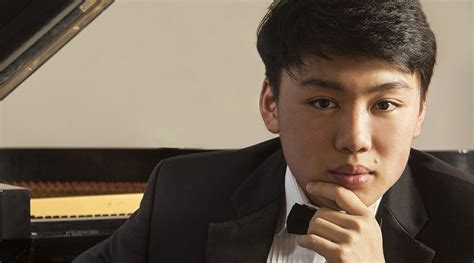A Quote by Bob Goff
We might be known for what we believed, but we're certain to be remembered for what we did about it.
Related Quotes
I have stayed these years in my hovel because of you. I have taught myself languages because of you. I have made my body strong because I thought you might be pleased by a strong body. I have lived my life with only the prayer that some sudden dawn you might glance in my direction. I have not known a moment in years when the sight of you did not send my heart careening against my rib cage. I have not known a night when your visage did not accompany me to sleep. There has not been a morning when you did not flutter behind my waking eyelids.
I want to be remembered as a woman who represented God but was controversial, stood by what she believed and wouldn't allow other people's opinions of her to manipulate her directions. As someone who helped others, loved others deeply even if they tried to hurt her, was there for people when she could be, and ultimately made everything she did about God and not just about herself.
Steve Jobs did not start started Apple as a scam. But he understood early on the power of marketing. The idea of the computer as a bicycle for the human mind - I think that was something he believed. He believed in making people comfortable with these machines, which is why he spent so much time thinking about how to design them a certain way, how to make them so user-friendly and interactive, and why he spent so much time studying the Zeitgeist.
An imbecile habit has arisen in modern controversy of saying that such and such a creed can be held in one age but cannot be held in another. Some dogma, we are told, was credible in the twelfth century, but is not credible in the twentieth. You might as well say that a certain philosophy can be believed on Mondays, but cannot be believed on Tuesdays. You might as well say of a view of the cosmos that it was suitable to half-past three, but not suitable to half-past four. What a man can believe depends upon his philosophy, not upon the clock or the century.
Life and study have persuaded me of the openness of history. There is no inevitability in history. Thinking about what might have happened, what could have happened, is a necessary element in trying to understand what did happen. And if, as I believe, individual acts of decency and courage make a difference, then they need to be recorded and remembered.
If one has to conform to a certain taste, he/she might lose his/her own individuality and imagination. But if you don't really care about winning competitions and think of them as chances to learn from the experience, they would become good ways to learn about others and yourself. Competitions are also stages where one becomes known to the public.
If anyone had told us in 1945 that there are certain battles we'll have to fight again we wouldn't have believed it. Racism, anti-Semitism, starvation of children and, who would have believed that? At least I was convinced then, naively, that at least something happened in history that, because of myself, certain things cannot happen again.
Jack believed in something—he believed in white witches and sleighs pulled by wolves, and in the world the trees obscured. He believed that there were better things in the woods. He believed in palaces of ice and hearts to match. Hazel had, too. Hazel had believed in woodsmen and magic shoes and swanskins and the easy magic of a compass. She had believed that because someone needing saving they were savable. She had believed in these things, but not anymore. And this is why she had to rescue Jack, even though he might not hear what she had to tell him.



































